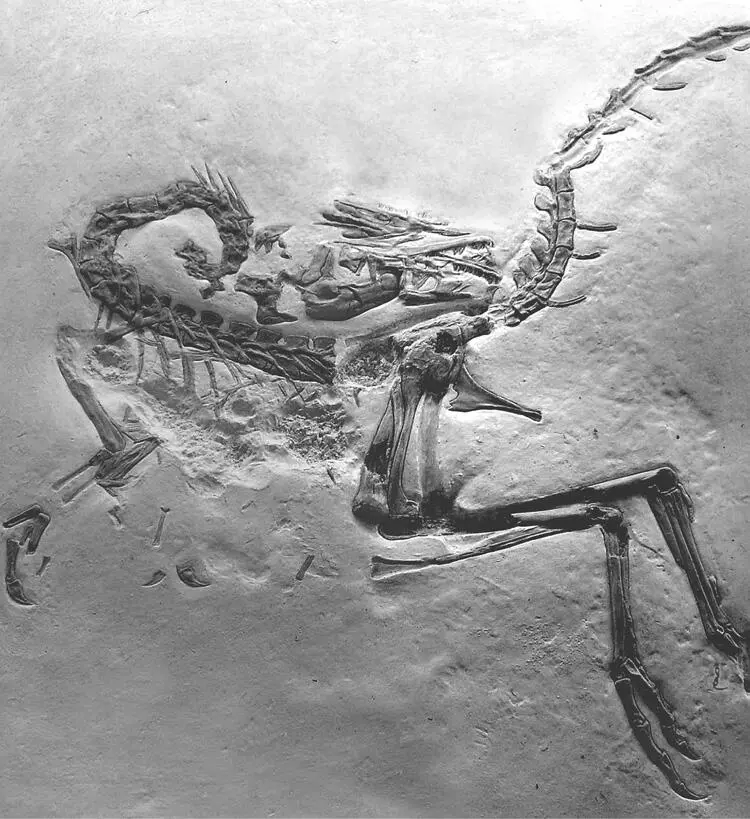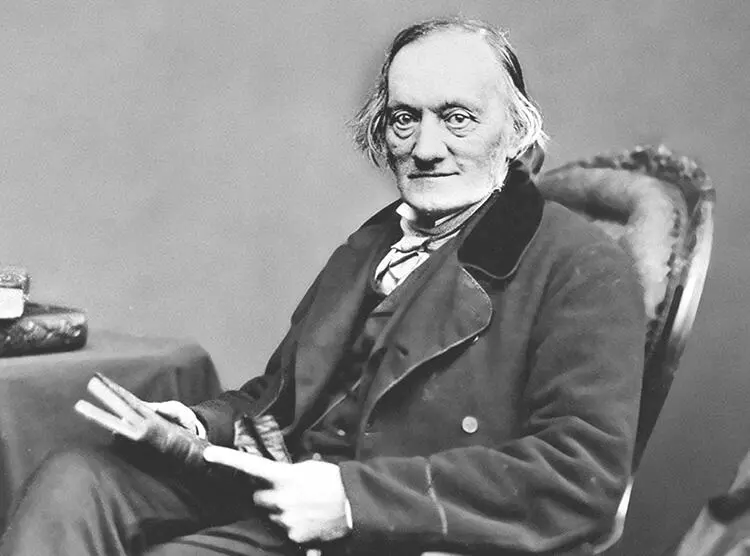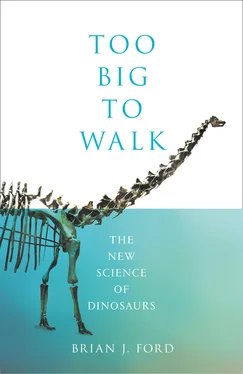
An exquisitely preseved specimen of Compsognathus longipes , a small theropod the size of a goose, was published by Johann Andreas Wagner in 1861. It had been discovered in limestone deposits from Riedenburg-Kelheim in Bavaria.
In England, Owen was preoccupied with the foundation of a new museum to house all such specimens. He had succeeded in being appointed superintendent of the natural history collections at the British Museum in 1856, whereupon he announced his first mission would be to remove all the biological specimens, not just the dinosaurs, and install them in a new building of their own. One of his strongest supporters was Antonio Panizzi, the museum’s librarian, who had never liked the expansion of the museum into natural history, and was eager to see the specimens depart. Panizzi wanted the space. The campaign eventually succeeded, and in 1873 work began on the new museum in South Kensington that we know today. This was the British Museum (Natural History), and it opened in 1881. Not until 1963 did it become a museum in its own right; only since then has it been known as the Natural History Museum. Owen was appointed the first director of the new establishment, and a magnificent statue of him was erected in the main entrance hall. But it didn’t last; in 2009 it was summarily removed, only to be replaced by a statue of the single individual that Owen disliked most of all: Charles Darwin. It was the ultimate irony.

We celebrate the life of this man who coined the term ‘dinosaur’, Sir Richard Owen, founder of the Natural History Museum. He was a brilliant comparative anatomist but was regarded as arrogant, sadistic and deceitful by his peers.
Owen had always been a scientific anatomist, given to analysis and discipline, who saw no reason to modify his religious beliefs. Charles Darwin, on the other hand, was a collector and an ardent student of natural history. The publication of Darwin’s Origin of Species immediately made sense of dinosaurs. Science could now argue that there was a steady process of evolution, and there were innumerable extinct species that marked the various stages from the distant past. I have explained that, although we imagine that the study of dinosaurs began with Owen, in fact it dates back much further – and curiously, the same is true of evolution. We regard it as Darwin’s great revelation, but in fact the idea goes back to the ancients, and a clear understanding of natural selection was written by others, long before Charles Darwin happened on the scene. We celebrate Darwin as the originator of evolution, indeed ‘his’ theory is celebrated by everyone as a cornerstone of modern science, but he was not the first to come up with the idea. His pre-eminence in evolution is a myth that has fooled us all. The idea of evolution was understood by the Ancient Greeks; Empedocles wrote about it around 450 BC, as did Lucretius some three centuries later. Aristotle envisaged the progress of life as a Great Chain of Being around 350 years BC – so evolutionary ideas had been around for 2,000 years before Darwin’s time. Indeed, he was not even the first in his family to write on the subject. Charles Darwin had a distinguished grandfather named Erasmus who has been lovingly documented by my much-admired friend Desmond King-Hele, himself a distinguished physicist and a specialist on space research. In his spare time, King-Hele has written extensively on Erasmus Darwin, who was a leading physician. He wrote a great work on life entitled Zoonomia in two great volumes that embraced many subjects – including evolution. The book was published in 1794, and included these words:
Since the earth began to exist, perhaps millions of ages before the commencement of the history of mankind, would it be too bold to imagine, that all warm-blooded animals have arisen from one living filament, which the first great cause endued with animality, with the power of acquiring new parts, attended with new propensities, directed by irritations, sensations, volitions, and associations; and thus possessing the faculty of continuing to improve by its own inherent activity, and of delivering down those improvements by generation to its posterity.
There you have it: evolution in a nutshell. Erasmus went further, and even proposed survival of the fittest as the mechanism involved: ‘The strongest and most active animal should propagate the species, which should thence become improved,’ he wrote back in 1794. Here we have the nature of evolution spelled out decades before Charles began his work. The notion of ‘survival of the fittest’ was not even mentioned in the papers on evolution by Wallace and Darwin that were presented to the Linnean Society in 1858, yet here we can see that it had been spelled out by Charles’s grandfather more than 60 years earlier. When challenged, Charles conceded that he had of course read Zoonomia , but insisted that his grandfather’s ideas had ‘no influence’ on his own thoughts, which would be a remarkable example of selective amnesia. In fact, the concept of evolution by natural selection had been current for decades before he wrote his book, and some even predate Erasmus. A French explorer and philosopher named Pierre Louis Maupertuis had written about the idea in his book Vénus Physique (‘the earthly Venus’), published in 1745. Here it is in the original French:
Le hasard, dirait-on, avait produit une multitude innombrable d’individus; un petit nombre se trouvait construit de manière que les parties de l’animal pouvaient satisfaire à ses besoins; dans un autre infiniment plus grand, il n’y avait ni convenance, ni ordre: tous ces derniers ont péri.
In English, it reads:
Chance, you might say, produced an innumerable multitude of individuals; a small number found themselves constructed in such a manner that the parts of the animal were able to satisfy its needs; in another infinitely greater number, there was neither fitness nor order: all of these latter have perished.4
There we see ‘survival of the fittest’ spelled out unambiguously a century before Charles Darwin was active. It is clear from the words of Maupertuis that the idea of natural selection was known far earlier than it is popular to imagine, yet his work too has been largely forgotten. Desmond King-Hele has suggested to me that the disappearance of his work could be due to suppression by Voltaire, to whose lover Maupertuis taught mathematics. She was Gabrielle Émilie Le Tonnelier de Breteuil, the Marquise du Châtelet, and a brilliant mathematician who translated Isaac Newton’s Principia into French. Little wonder Voltaire regarded Maupertuis with envy.
Four years later the notion of evolution was spelled out by Georges Louis Leclerc, Comte de Buffon, who was the greatest naturalist in France of his generation. He understood what fossils were, and he also recognized that living organisms changed over time, and that they came from simpler, common ancestors. Buffon’s books extended to numerous volumes and were highly detailed, while his grounding in practical science was exemplified by the engraving that acted as the opening illustration to the History of Animals – it shows him peering intently at a specimen down a microscope.5
As we have discovered, James Hutton was a brilliant geologist, and in 1794 he also came up with the essential idea of evolution by natural selection. In a far-reaching book on knowledge and reason, he wrote:
Читать дальше














